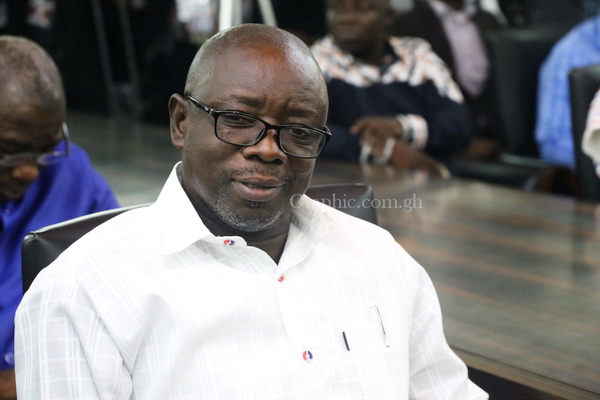
Asutifi North Assembly loses gh¢12.7 million royalties from Newmont
The Asutifi North District Assembly (ANDA) lost a total of GH¢12,789,628.20 in revenue due to the inability of the government to raise the royalty rate for gold mined in the district by the Newmont Ghana Gold Limited (NGGL) from three per cent to six per cent, which was permitted between 2008 and 2016.
In addition, the assembly lost a total of GH¢939,140.15 in property rate that it should have earned from the company during the same period because of the agreement signed between the NGGL and the government that exempted the former from the payment of tax on its properties in the area.
These came to light during an information sharing meeting of stakeholders at Kenyasi No. 2 to disseminate findings of a study which examined the effect of the 2003 investment agreement of the NGGL on the power of the local authority to impose and collect local taxes.
The study, which was commissioned jointly by the Ghana Integrity Initiative (GII) and the Livelihood and Environment Ghana (LEG), was undertaken by the acting Director of the Institute of Local Government Studies (ILGS), Dr Abdulai Darimani.
The study titled: Freezing local revenue to stabilise foreign mining companies – A case study of Asutifi North District in Ghana, was aimed at provoking a search for policy options for maximising the benefits of mining agreements for local level development.
It was also to facilitate a reflection on the effect of national mining agreements on local revenue mobilisation.
Background
In 2003 and before the enactment of the Minerals and Mining Act, 2006 (Act 703), the government signed an investment agreement with the NGGL for the development of the Ahafo and Akyem gold mining projects.
The agreement made wild provisions for a fixed fiscal regime for the NGGL, not only diminishing government revenue but also depriving the local assemblies of their power and authority to impose and collect local taxes.
Based on the provisions under this agreement, the ANDA was unable to impose taxes on the 221 NGGL properties eligible for the payment rates.
Recommendation
Presenting the findings of the research, Dr Darimani called on the Minerals Commission, the Ghana Revenue Authority and the National Aggregator of the Extractive Industry Transparency Initiative (EITI) to conduct and publish annual tax incentives analysis on beneficiary mining companies.
He also suggested to the minister of Lands and Natural Resources, through broader stakeholder consultation, to develop specific guidelines for the utilisation of mineral royalties received by host metropolitan, municipal and district assemblies (MMDAs), stools and traditional councils.
“Investment agreements such as that of 2003 should be linked to the medium-term development plans of host assemblies and the overall national strategy for economic transformation,” he stated.
DCE
In his address, the Asutifi North District Chief Executive, Mr Anthony Mensah, said the amendment of the investment agreement had enabled the assembly to collect property and other taxes from the NGGL and to increase its internally-generated funds to embark on more development projects.
